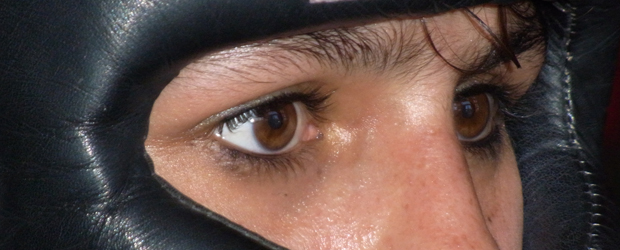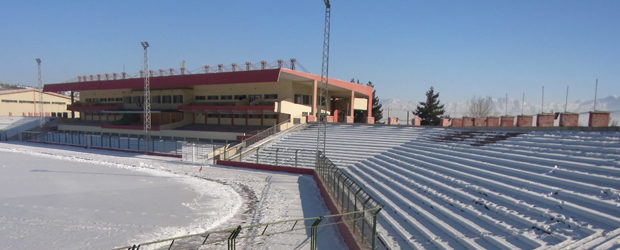Kabul’s women boxers fight for recognition
 Alex Thomson
Chief Correspondent
Alex Thomson
Chief Correspondent
Channel 4 News Chief Correspondent Alex Thomson joins Afghanistan’s top female boxers as they fight their way to the London 2012 Olympics.
Boxing without a ring? Isn’t that a bit like skiing without skis…surfing without a board?
Well, we are now a few months short of the 2012 London Olympics where women’s boxing will be an Olympic sport for the first time in history. And simply to box at any level at all if you are a woman in Afghanistan, is to make history.
The toughest sport? In the toughest country? It would probably be a yes to both for a man. For a woman you are truly into new sporting territory.
But under the main stand of Kabul’s Ghazi stadium, most weekday afternoons history is being made by a group of around 20 young boxers keen to break the mould and fight in a country where no woman has boxed before.
But way more than that. Not simply to box but to win. To medal.
Already 19-year-old Shabnan Zahimi has done just that. Winning a gold medal in regional competition in Tajikistan recently and all that despite not having any ring to practice in.

There is still nothing like that in their training “gym” which is little more than a freezing room with broken mirrors and some old matting on the floor.
“Yes,” she says, “it was quite difficult. I had to practice in a ring in Tajikistan for a couple of days and then compete. It was very hard.”
Some understatement in a sport where ringcraft, awareness of the ring and your space matter every bit as much as speed, power and accuracy of your punch.
But these are, of course, minor difficulties in a country where the place of women anywhere outside the home and the kitchen is certain to arouse silent – or not so silent – hostility.

‘My family were angry’
It is true that the Taliban used to shoot and mutilate prisoners here at the Ghazi Stadium. But it is also true that President Hamid Karzai passed a law allowing Shia men to starve their wives if they refuse to have sex, and force women to get their husband’s permission to go out to work. The Taliban are not the only franchise in Afghanistan out to keep women in the home and worse.
So it is that these women need to arrive and leave by bus. It is easier and more secure that way. The supporters of this revolutionary sport in Afghanistan – including Oxfam – do not encourage media from inside the country. It is one thing to box you see – quite another to flaunt it too much.
Shabnan’s younger sister Sadaf, who is 18 says: “Oh yes, my family were angry with us at first. They did not want it. It took a lot of time to persuade them. But now they are very happy and quite proud.”
As they should be, for Sadaf is indeed going to London to compete this summer. Preparation will mean a long time away from home and her country as the coach will need to find a boxing ring in which to practice. Perhaps in India, they think.

‘My dream team’
Coach and Afghanistan Olympic Committee member Mohammad Sabir Sharifi looks on with considerable pride, not just at the Zahimi sisters, but at all the women here this afternoon pounding the heavy bag and sparring around the room: “They are my dream team,” he says quite simply, smiling and looking on as if suddenly realising what has been achieved here already against huge odds.
The smile doesn’t last. He’s off, out into the middle of the room to involve himself in the air-jabbing and right-hooks being thrown around this freezing concrete chamber.
They all look pretty tired out at the end of it all – and don’t forget the Kabul is nearly 6000ft above sea-level. But coach Sharifi is far from satisfied. He accuses them of slacking this afternoon, not giving 110 per cent.
They take it to heart, not a smile in the room as they sit in a row, still panting with exertion. And then it’s over. Off to their water bottles. There is no running water here. And thus no showers, either.
Then out into to snow to wait for the bus, heads carefully covered in scarves or hijabs. Then the bus will drop off at various points around the city and nobody but their families need know what has just happened under the Ghazi Stadium for the past two hours.